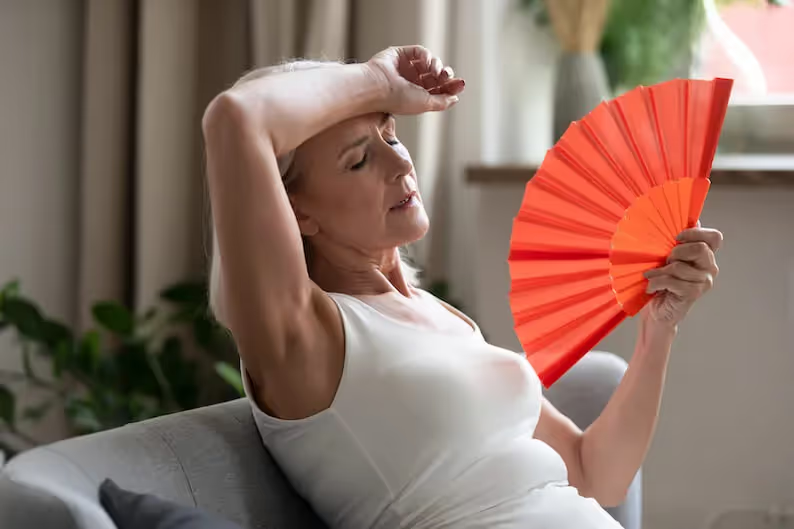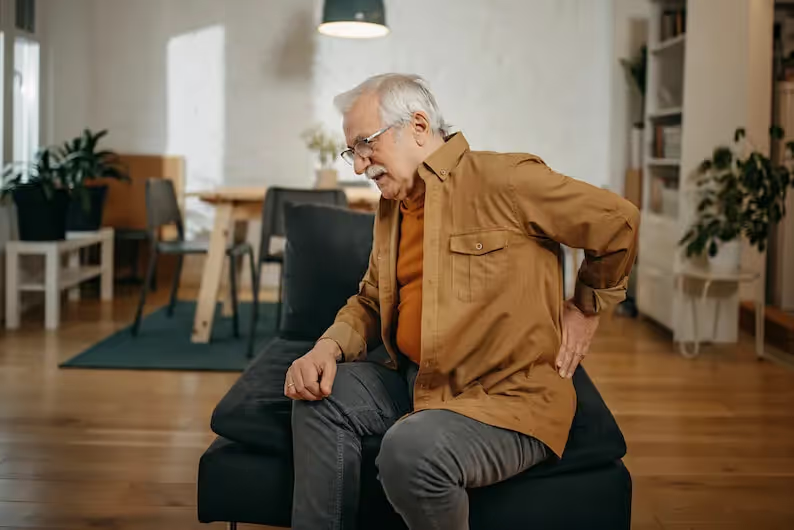As we get older, our body's ability to self-regulate body temperature becomes increasingly more difficult. This is especially true during these sweltering days. We become very sensitive to heat, which can quickly affect us. That's why it's important to take precautions and follow hot weather safety tips. Our inability to self-regulate temperature can result from several factors, including psychological changes, illness, or medications. Unfortunately, our bodies just don't function like they used to when we were younger. Some older adults even perspire less, which is vital to helping our bodies cool down on these very hot days.
Recognizing Heat-Related Illnesses
Two common heat-related illnesses are heat exhaustion and heat stroke. Heat exhaustion can include symptoms such as heavy sweating, weakness, cold, pale, and clammy skin, a fast or weak pulse, and even fainting. It occurs when the body loses excessive amounts of water and salt through sweating, and if not addressed, it can progress to heat stroke. Heat stroke is more severe and requires immediate medical attention. If left untreated or not treated in time, it can be life-threatening. Unlike heat exhaustion, heat stroke indicates the body's temperature regulation system has failed. Its symptoms include high body temperature (above 103, hot, red, dry, or moist skin, rapid and strong pulse, and possible unconsciousness. Knowing the symptoms of heat-related illnesses is crucial in taking timely action to prevent serious consequences. Here are the signs of heat stroke and heat exhaustion to look out for:
Heat Stroke Symptoms
- High body temperature (above 103 degrees)
- Flushed, dry, and hot skin
- Racing heart rate
- Rapid breathing
- Nausea
- Dizziness
- Headache
- Fainting
- Confusion
- Heat exhaustion
Heat Exhaustion Symptoms
- Heavy sweating
- Pale and clammy skin
- Nausea or vomiting
- Weakness
- Muscle cramps
- Dizziness
- Headache
Who's At Risk For Heat Stroke Or Heat Exhaustion?
Everyone! Anyone who is exposed for a prolonged period of time to extreme heat is at risk of suffering from a heat-related illness, such as heat stroke and heat exhaustion. However, not everyone tolerates heat the same, putting some at an increased risk. Those at greater risk include:
- People 65 and older
- Those who are ill, have chronic health conditions or are prescribed certain medications
- People who are overweight
Tips for Hot Weather Safety
Recognizing and responding promptly to heat illnesses can be lifesaving. Here are some hot weather safety tips you should be using:
1. Stay Inside
It sounds simple enough, but it can be difficult to do when everyone is running here and there. When the temperatures rise, the safest option for older adults is to stay indoors with the air conditioning running. However, if, for some reason, you do not have air conditioning, you should visit friends and family or seek shelter at a public place, such as a library or church. If the AC goes out, the temperatures in your house can rise rapidly, becoming dangerous and life-threatening.
2. Avoid Cool Showers
As much as it sounds like a nice refreshing reprieve from the heat, a cold shower will do more harm than good and possibly make you feel worse. When your body is shocked by an extreme temperature, such as a quick plunge in cold water, it overcompensates and conserves body heat. The frigid temperature decreases blood flow and makes it hard for your body to regulate its core temperature. A lukewarm shower will boost blood flow, helping cool your body off.
3. Limit Caffeine and Alcohol
It's essential to stay hydrated by drinking plenty of fluids. However, drinks with caffeine and alcohol are diuretics and increase dehydration in the body. It's best to avoid or at least limit to prevent dehydration.
4. Eat Smaller Portions
Chowing down on a large meal, especially one loaded with carbohydrates and protein, only produces more heat in your body. This is because your body must work harder to digest the foods. When it's hot outside, it's best to eat lighter meals.
5. Avoid Using Sources of Heat
Sounds obvious, but we're not talking about your actual heat. We're referring to the oven and even lamps or electronics that tend to be left running all day. These types of appliances and devices generate unwanted heat that could easily be avoided. Plus, to help keep the sun's heat from streaming inside your house, keep your curtains and blinds closed. This will help keep the inside of your house cool and your AC from working so hard.
Recognize And Respond
It's important to follow these heat safety tips for older adults to help prevent becoming overheated or experiencing another heat-related illness. Heat exhaustion or heat stroke can come on quickly and be extremely dangerous, especially for those who are older or ill. Take precautions and stay cool during these summer heat waves.




